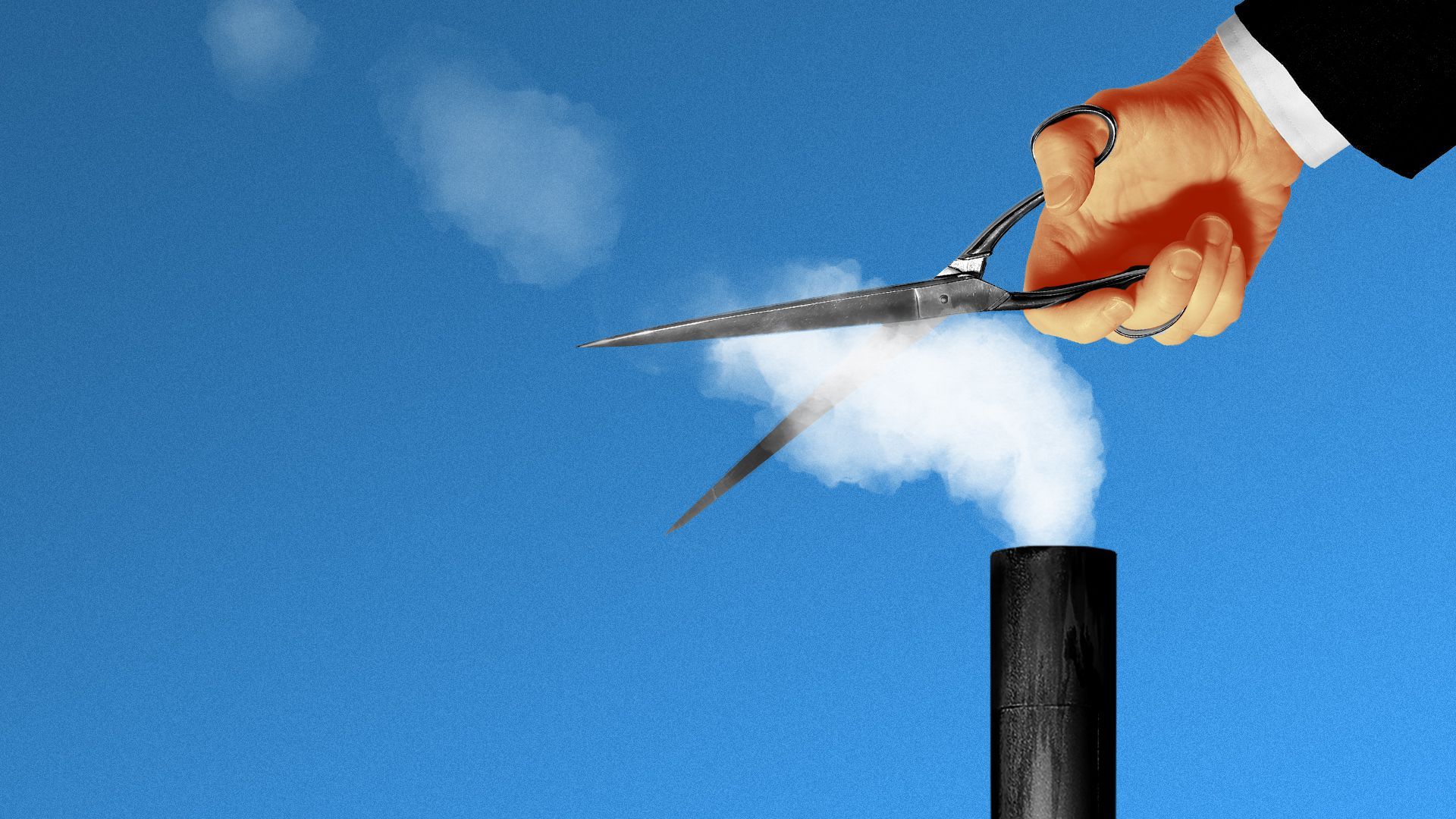How the federal climate bill could help cut Washington's emissions
Add Axios as your preferred source to
see more of our stories on Google.

Illustration: Sarah Grillo/Axios
The Inflation Reduction Act, which President Biden signed into law Tuesday, is expected to bring a flood of money into Washington state, and local officials say it'll supercharge their efforts to fight climate change.
Driving the news: The package will pour about $370 billion into emission-reduction efforts nationwide — and Washington is in a good position to get a large chunk of that cash, according to local leaders.
What they're saying: At a press conference Tuesday. U.S. Sen. Patty Murray, D-Washington, called the new law "the largest investment in climate action in American history."
- Reuven Carlyle, a Seattle Democrat who chairs the state Senate's energy committee, said the federal bill complements laws recently passed in Washington to move to 100% clean electricity, require cleaner gasoline and enact a cap-and-trade program.
- Because local companies and agencies have been working to comply with those state laws, many have emissions-cutting projects already in development that are strong candidates to receive money under the federal law, Carlyle told Axios.
- "We are as close to being a shovel-ready state as you can be, because of all our policy work," Carlyle said.
Zoom in: On Tuesday, officials with the Northwest Seaport Alliance — a partnership between the ports of Seattle and Tacoma — said money allocated by the new law could help them finish installing shore power at international cargo terminals.
- That way, ships could plug into electrical power instead of having to burn fossil fuels when docked.
- New grants and tax incentives also could help private companies convert diesel-powered equipment and trucks to cleaner options, said Steve Nicholas, the Seaport Alliance's senior project manager for air quality.
Zoom out: The federal bill will provide tax credits of up to $7,500 for people who buy electric vehicles; expand clean electricity tax credits; and supply $9 billion in rebates to help people make their homes more energy efficient.
Yes, but: Climate activists have criticized how the law mandates new oil-and-gas drilling auctions on federal lands and waters.
- In a statement Tuesday, Nicole Walter, an advocate with the environmental group WashPIRG, called the bill "far from perfect," citing its "counterproductive" subsidies for fossil fuel companies.
The big picture: Even with those provisions, Democrats say the bill puts the U.S. on a path to reduce its carbon emissions by up to 40% based on 2005 levels by 2030.
